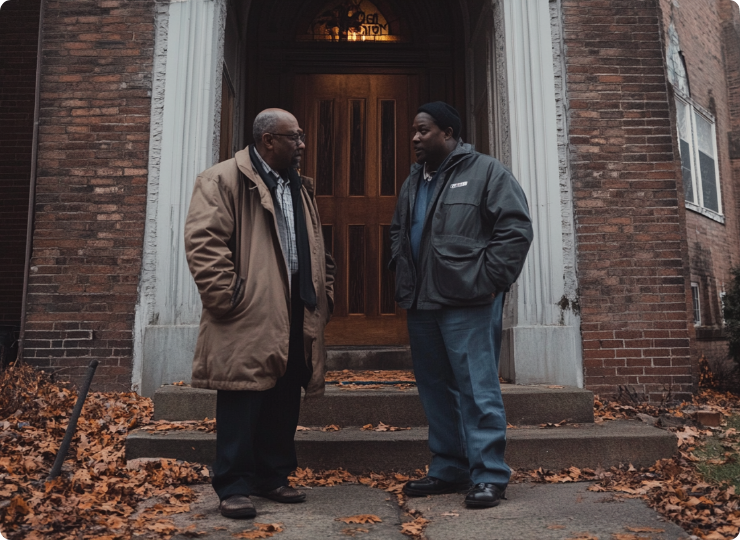Exploring the Pathways to Addiction Recovery
- Michael McEvoy
- Jul 8, 2025
- 3 min read
Updated: Sep 15, 2025

One Goal, Many Pathways:
Starting Your Recovery Journey
Choosing to get sober is a powerful step forward, one that takes courage, clarity, and a commitment to something better. Many start with drug and alcohol detox, but what’s next for you depends on your needs, your goals, and what helps you stay grounded. When trying to figure out how to stay sober after relapse, recovery isn’t one-size-fits-all. What works for one person might not resonate with another. That’s why at RiseWell Recovery, we honor all paths to healing.
Below are some of the most common and most empowering options for starting and sustaining recovery. Each offers something different. What matters most is finding the approach that supports your journey. Regardless of the pathway(s) that you choose, there is building evidence that adding recovery coaching improves outcomes. Read on for more tips for staying sober long term.
Drug and Alcohol Rehab (Residential Treatment)

Best for: Individuals requiring intensive support, detoxification, or dual-diagnosis care.
Inpatient rehab provides round-the-clock care in a structured setting, typically for 30 to 90 days. It provides a safe and immersive environment for early healing.
Offers:
Medical and clinical support
Peer connection in a controlled space
Time to step away and focus deeply on recovery
Things to consider:
Higher cost
Requires time away from home and work
Intensive Outpatient Program (IOP)

Best for: People managing work, family, or home life while seeking structured support.
IOPs blend flexibility with accountability. You attend therapy and groups several times a week while living at home.
Offers:
Real-life integration of recovery tools
Lower cost than inpatient
Balance between support and independence
Things to consider:
More exposure to triggers
Requires self-discipline and a strong support system
12-Step Programs (AA, NA)

Best for: Those who value peer connection and spiritual reflection.
Alcoholics Anonymous (AA) and Narcotics Anonymous (NA) offer free, peer-led groups with a structured path to sobriety based on spiritual principles.
Offers:
Widespread accessibility
Fellowship with people who’ve “been there”
A long-standing framework for ongoing recovery
Things to consider:
Emphasis on spirituality may not resonate with everyone
Not a replacement for therapy or medical care
SMART Recovery

Best for: People who prefer a secular, science-based approach to recovery.
SMART Recovery (Self-Management and Recovery Training) utilizes evidence-based tools, such as cognitive-behavioral therapy (CBT), to support behavior change and self-empowerment.
Offers:
Practical skills for managing cravings and emotions
A focus on self-reliance and personal growth
Online and in-person meeting options
Things to consider:
Less emphasis on peer sponsorship
May require self-initiation and commitment to self-work
Recovery Dharma and Refuge Recovery

Best for: Those drawn to mindfulness, meditation, and Buddhist-inspired practices.
Recovery Dharma and Refuge Recovery offer a peer-led path to recovery, grounded in Buddhist principles and meditation, with a focus on compassion, wisdom, and non-attachment.
Offers:
A healing path rooted in mindfulness and ethical living
Safe space for reflection and self-inquiry
Inclusive, non-hierarchical structure
Things to consider:
Less traditional structure
It may be new or unfamiliar to those not already practicing mindfulness
Drug and Alcohol Counseling

Best for: People looking to process trauma, emotions, or behavior patterns.
Licensed counselors use evidence-based approaches to address the roots of substance use, often integrating trauma work and mental health care.
Offers:
One-on-one therapeutic support
Tools for emotional resilience
Often covered by insurance
Things to consider:
May not include daily support or peer connection
Consistency and time are key
Where Recovery Coaching Fits In

No matter which pathway you choose, working with a Recovery Coach can help tie it all together and reduce relapse rates
Recovery Coaches walk beside you, offering guidance, accountability, and grounded encouragement as you build your new life.
A coach can help you:
Define and pursue your personal recovery goals
Build sustainable routines and habits
Stay focused through challenges
Navigate between meetings, treatment, and everyday life
Feel seen, supported, and empowered, without judgment
How to Stay Sober: Finding What Works for You
There’s no single way to recover. Many people mix and match pathways. A popular combination is to follow residential or IOP with therapy, with 12-Step programs and recovery coaching, or starting with inpatient care and transitioning to group support.
What matters most is finding what fits. Your recovery is your own, self-guided, supported, and full of possibility.
A RiseWell Recovery Coach can help you explore your options and create a personalized path that reflects your needs. Book a Discovery Call, and let’s walk this journey together.
Serving Western Connecticut and beyond, RiseWell Recovery offers certified addiction recovery coaching, sober companions, interventions, and sober transportation in towns like Danbury, Bridgeport, Stamford, Waterbury, and Torrington.



